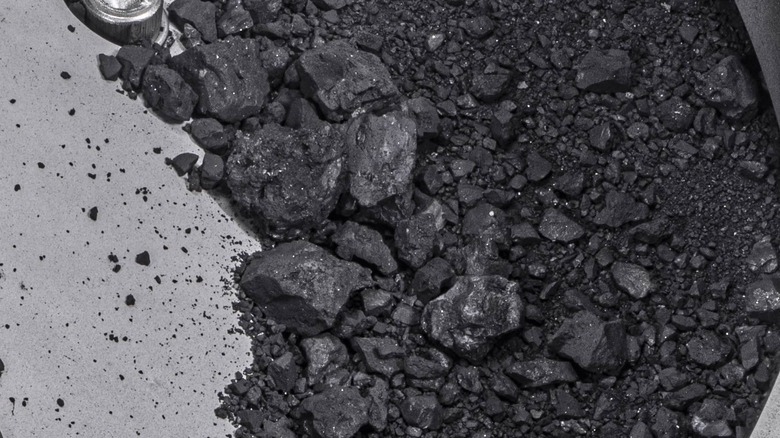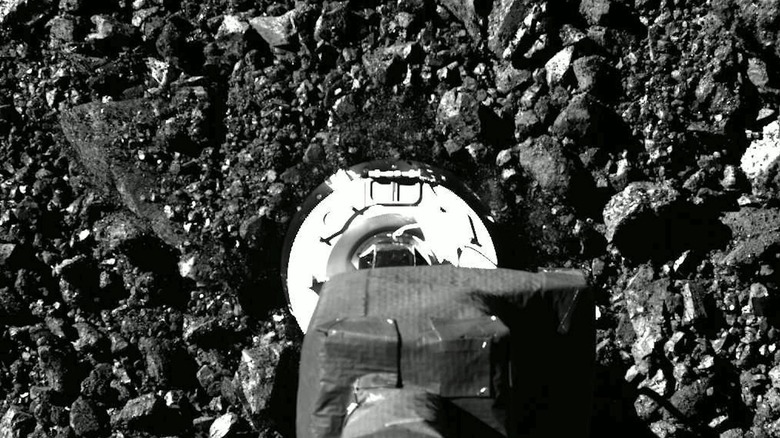NASA Gives First Look At Asteroid Sample And Confirms Presence Of Water
Over two weeks after the OSIRIS-REx spacecraft returned to Earth carrying samples from a near-Earth asteroid named Bennu, NASA has finally given us the first look at the pieces of rocks alongside some interesting findings. At first glance, the regolith collected by Bennu looks similar to the samples collected from the Ryugu asteroid, thanks to its ashy black appearance. But Bennu's a special case.
Following an early analysis, NASA has found that it contains a crucial building block of life –- water. "Sample collected in space and brought to Earth by NASA show evidence of high-carbon content and water," the space agency notes in a blog post. But it's just the start of more surprising discoveries, primarily because scientists have a much larger sample to study this time.
More carbon than expected and an abundance of water were found in the 4.5-billion-year-old asteroid sample returned to Earth by #OSIRISREx. The two combined could mean that the building blocks for life on Earth might be locked in these rocks: https://t.co/IY6QfXXqeT pic.twitter.com/olxjDQG6bm
— NASA (@NASA) October 11, 2023
In fact, it's the biggest carbon-heavy asteroid sample that has ever been delivered to scientists on Earth. The discovery of water in the asteroid sample is remarkable in itself, and it can offer more insights into how the materials critical to the origin and sustenance of life on Earth may have arrived and what kind of chemistry we can expect to tackle related challenges in the future. So far, NASA has done infrared scanning, electron microscopy, X-ray diffraction analysis, chemical analysis, and 3D modeling, which was enough to find abundant water and carbon reserves in the asteroid sample.
An extremely promising start
NASA will keep 70% of the samples for analysis at the Johnson Space Center, while the rest will be shared with partner space agencies and scientists across the world. Bennu was a careful selection, not only because of its close proximity but also because of its estimated 4.5 billion-year-old cosmic history. Thought to have broken off from a much larger asteroid, Bennu has the potential to contain organic molecules that resemble the ones that played a role in the origin of life on our planet, with water and sulfur being some of them.
Named after an ancient Egyptian god (following a naming competition won by a 9-year-old boy), the asteroid's samples will be studied for the next couple of years to get a deeper look into its chemical composition and see if it ever harbored conditions conducive for carrying seeds of life. These samples are being hailed as an astrobiologist's dream because asteroids are thought to have seeded the building blocks of life on Earth. Earlier this year, scientists found traces of niacin and uracil — both essential for living organisms — in samples of the Ryugu asteroid.
Bennu won't be the last asteroid NASA is targeting for scientific analysis. NASA has assigned the duty of exploring the Apophis asteroid to the OSIRIS-APEX spacecraft, a renamed version of the vehicle that executed the OSIRIS-REx mission. NASA's Psyche spacecraft is also on the verge of launch to explore a metal-rich asteroid, plans that would materialize in 2029.

